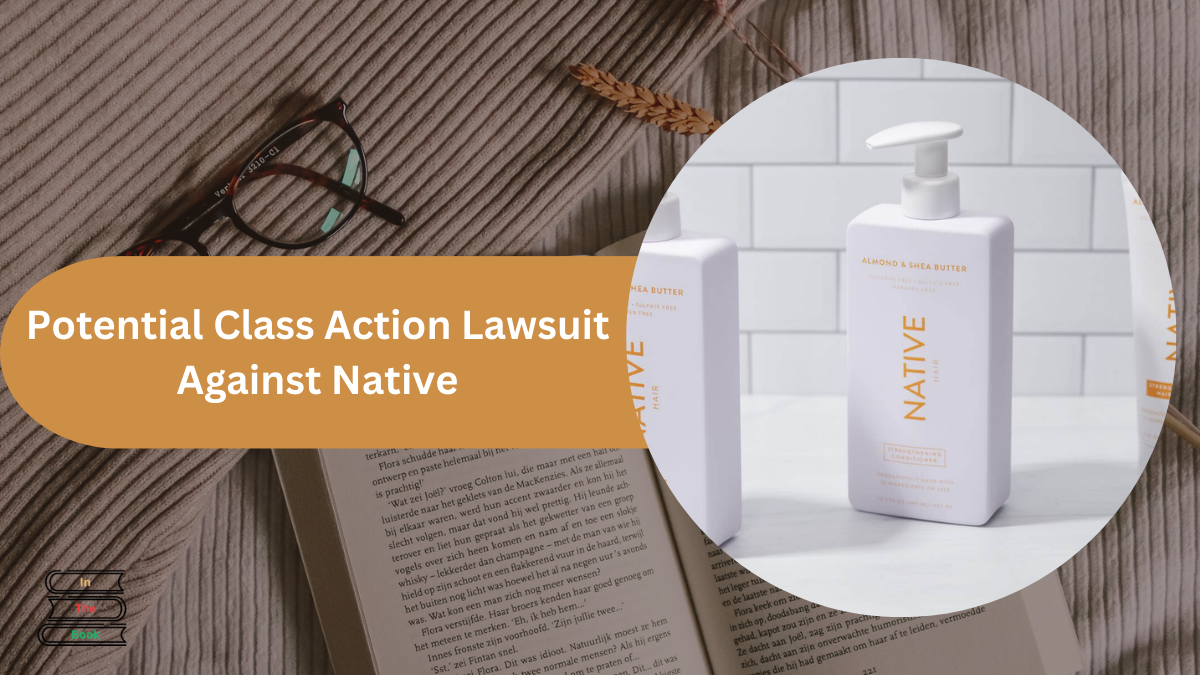Attorneys are considering legal action against Native, a popular personal care brand known for its “natural” grooming products, over allegations that the company’s ingredient lists may be misleading. These concerns stem from the potential presence of harmful forever chemicals in Native’s products. The brand, widely regarded for its clean, toxin-free marketing, is now under scrutiny, raising red flags for consumers who prioritize natural and safe ingredients.
This article delves into the specifics of the situation, from what forever chemicals are to the allegations of false advertising. Here’s everything you need to know about the potential Native shampoo lawsuit and how it could impact Native’s customers.

Contents
- What Are Forever Chemicals?
- The Allegations Against Native: What Is the Proposed Class Action Lawsuit?
- Consumer Concerns: Fear and Uncertainty
- Are Native Products Truly Safe?
- Native Product Ingredients:
- Positive Reviews from Trusted Sources:
- What’s Next for Native?
- What Consumers Should Consider:
- Conclusion: Navigating the Potential Risks
What Are Forever Chemicals?
- Forever chemicals refer to a class of manufactured chemicals known as per- and poly-fluoroalkyl substances (PFAS).
- PFAS are used in various industrial applications and consumer products for their water, grease, and stain-resistant properties.
- Health risks: Prolonged exposure to PFAS has been linked to serious health concerns, including:
- Cancer
- High blood pressure
- Liver damage
- Hormonal disruption
Given these risks, the potential presence of PFAS in Native products is alarming, particularly for consumers who trust the brand to offer clean, naturally-formulated alternatives.
The Allegations Against Native: What Is the Proposed Class Action Lawsuit?
As of April 26, 2024, attorneys were still in the investigative stage of a possible class action lawsuit against Native. The legal team, in collaboration with ClassAction.org, is exploring whether the company’s claims of offering “clean” and safe products may be false if PFAS are found in the ingredients.
Products Under Investigation:
- Cucumber & Mint Shampoo and Conditioner
- Powder & Cotton Body Wash
- Citrus & Herbal Musk Deodorant
The lawsuit alleges that Native’s marketing of “natural” and “clean” products could be misleading to consumers if it turns out the products contain PFAS, despite their branding that suggests otherwise. For customers who use these products specifically to avoid chemicals found in mainstream alternatives, the revelations could be deeply unsettling.
Consumer Concerns: Fear and Uncertainty
The potential Native shampoo lawsuit has sparked concerns among Native’s loyal customer base. Many users purchase the brand’s products to avoid potentially toxic ingredients and to feel safe about what they are applying to their bodies. The news of possible PFAS contamination has left some users reconsidering their choices.
Customer Reactions:
- On Reddit, one user expressed their anxiety over the potential legal action:
- “This lawsuit remains inconclusive, however, it has made me scared to use their products, especially after recently buying stock shelves of it for future use,” wrote user throwaway8262835.
The ongoing investigation has caused a stir among Native’s fans, many of whom are holding off on further purchases until more information is revealed.
Are Native Products Truly Safe?
While Native products are currently under scrutiny, it’s important to note that no official findings have been released to the public. Until there is concrete evidence, it’s difficult to say whether Native products contain PFAS. However, Native is still widely regarded as having cleaner ingredient lists compared to many other personal care brands.
Native Product Ingredients:
- Common ingredients found in Native products include:
- Water
- Citric Acid
- Sodium Chloride (salt)
These ingredients are often considered safer and more familiar to consumers seeking naturally-formulated personal care items.
Positive Reviews from Trusted Sources:
- Mamavation, a trusted health and wellness site, continues to recommend Native over other brands because of its relatively clean ingredient profile.
- The Environmental Working Group (EWG) has also given favorable ratings to several Native products through its Skin Deep database, which evaluates ingredient hazards and data availability.
- Native products score between 1 to 5 on EWG’s scale, where 1 is considered one of the safest scores, and 10 is the worst.
While the brand is lauded for using fewer toxic ingredients, if Native products are found to contain PFAS, it could lead to significant backlash and loss of consumer trust.
What’s Next for Native?
At the time of writing, Native has not responded to inquiries regarding the Native shampoo lawsuit or the allegations about PFAS in their products. A representative did not provide a statement prior to the publication of this article, but we will update the story if and when Native addresses the concerns.
What Consumers Should Consider:
- If you are currently using Native products and are concerned about the potential for PFAS contamination, it may be worth holding off on future purchases until more information becomes available.
- Keep an eye on updates from both Native and legal teams to determine whether the company takes steps to address the situation or if the investigation finds harmful substances in their products.
Conclusion: Navigating the Potential Risks
The growing concerns surrounding Native’s products and their potential contamination with PFAS highlight the importance of transparency in product labeling and ingredient sourcing. Consumers turn to brands like Native for their clean, natural marketing claims, and any discrepancy between marketing and reality could result in significant fallout.
For now, the proposed class action for Native shampoo lawsuit remains under investigation, and no definitive conclusions have been drawn. However, the possibility that “forever chemicals” may be lurking in a brand many people trust for natural grooming products is concerning. Until more information is available, consumers may wish to remain cautious about using Native’s products while following the developments closely.
Click Here To Read More

Chandler is an avid automobile enthusiast who is passionate about all things on wheels. From the latest car models to classic vintage rides, I love exploring the automotive world’s intricate details and engineering marvels. With years of experience in test-driving, reviewing, and analyzing cars, I provide readers with comprehensive insights and honest opinions.

























